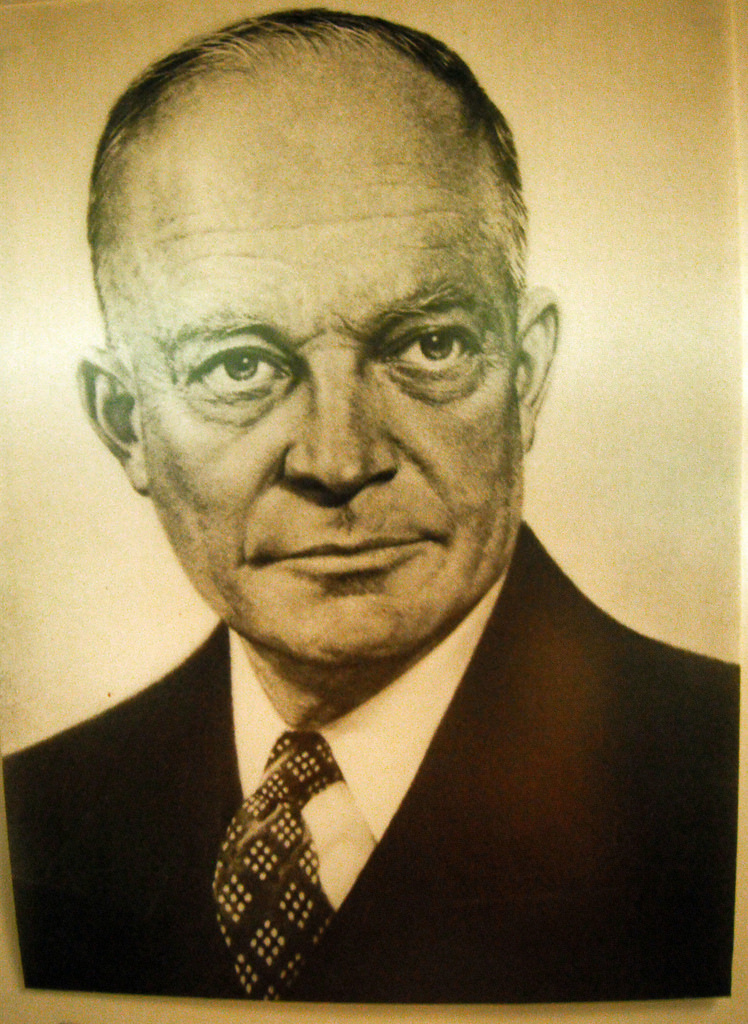| Sometimes, a look into the distant past can be startling. That’s true if you’re looking at photos of a younger, thinner you. It’s even more so when you look at the way presidential politics was waged. The nation has gotten fat and cranky. Recently, I came across a Youtube video of Edward R. Murrow’s news program, “See it now.” The episode, filmed in June of 1952, featured Gen. Dwight D. Eisenhower, who at the time was hoping to win the GOP nomination (that wasn’t settled until that year’s convention in Chicago). Murrow asked Eisenhower why he had said he wouldn’t campaign on “personalities,” which would translate today into attacks on his opponents’ character. “First of all, I believe nothing is gained by dealing in personalities,” Eisenhower said. “Moreover, when you deal in personalities, you create hurt feelings, and they are very difficult ever to heal. |
| | “In a way it is an unforgiveable thing, if it is not necessary in order to show the difference between, let’s say, doctrine or principle. Moreover, I personally have been the target of many kinds of personal attacks, and finally, I think they create the feeling in me, that wasn’t a very big man who made them.” To say that seems quaint today is to say a ’52 Studebaker looks old fashioned. The only difference is that people today would value the Studebaker at several thousand dollars; a concern over “personalities,” not so much, apparently. Republicans and Democrats seem as unconcerned with hurt feelings on the other side as they are with compromises. Despite dire warning from all sides, the nation is entering a presidential campaign the Washington Post said will be “a competition between two candidates viewed unfavorably by a majority of the current electorate and with voters motivated as much by whom they don’t like as by whom they do…” That’s according to a Washington Post-ABC News poll, which found nearly 60 percent of voters have negative impressions of both Donald Trump and Hillary Clinton. About half the supporters of each candidate say they are voting mainly to oppose the other, rather than in support of their favorite. The Post said the race is a virtual dead heat, when measured by the preferences of registered voters. Meanwhile, a report in Reuters predicted a nasty five months ahead, “as Clinton accuses Trump of being temperamentally unfit to serve and the New York billionaire charges Clinton has a dark past with shades of corruption and a weak record as President Barack Obama’s first-term secretary of state.” How did we get here from 1952? The answers to that are long, complex and controversial, but also probably as simple as comparing the popular media of the two eras. For whatever reason, many people today have given way to their worst instincts, and they deal in “personalities” for sport. In 2013, a Harvard Business Review study found that about half the nation’s workers said they were treated rudely at work at least once a week, up sharply from 25 percent in 1998. And yet the high negatives for each candidate would indicate voters are not embracing the attacks so much as rewarding the candidate they find least offensive. That may be a glimmer of hope, but it wouldn’t be enough to keep you warm at night. Americans expect their presidents to protect the nation's interests as commander in chief and to push an agenda on a generally reluctant Congress. But they also traditionally have seen the president as a tone-setter for the highest notions of public behavior, even if so many of them have failed to live up to those notions privately. For the first time, this year that is beginning to seem as quaint as that Eisenhower interview. If current poll numbers hold, we will get a president in November whose mandate is to keep the other candidate from assuming office. That’s hardly visionary. Let’s hope, against all evidence, that it is a temporary historical blip. |


 RSS Feed
RSS Feed

